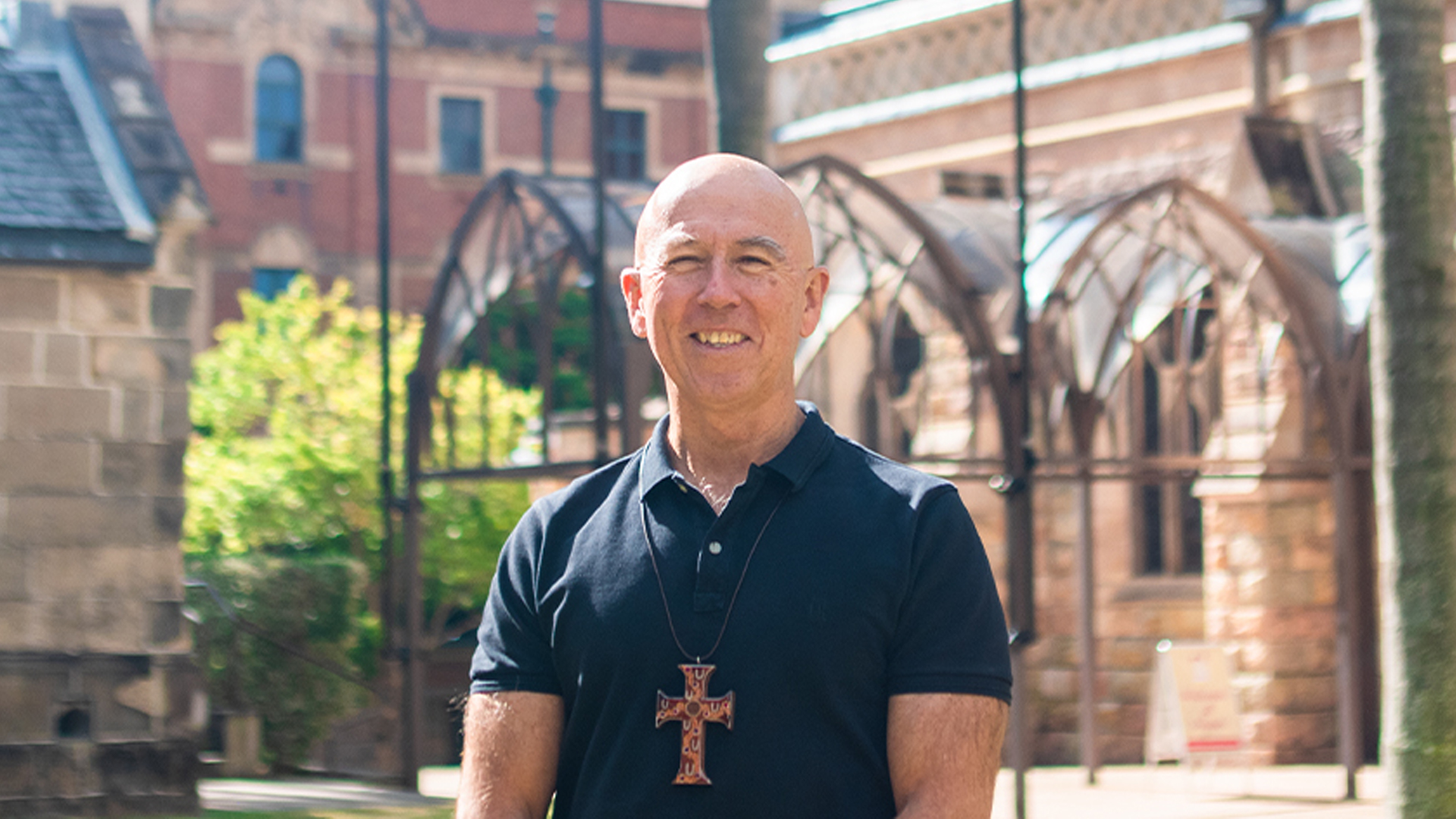Words by Bishop Tim Norton
It is true that when going to a new culture, a person must spend a lot of time and energy in finding ways to adapt to that new cultural space. It is just as true that a person returning to their home culture should also spend significant time and energy in adapting again to the home space. The reason for this is that the person and the home place have both changed.
I returned to Australia six months ago after living overseas for eight years, and I am very aware that I am going through a period of transition as I adjust to living in my home country once again. This is heightened by the fact that I have never lived in the beautiful city of Brisbane before. This transition period allows me to view my home country with new eyes and heart.
Some changes that I am observing are obvious – new governments, new buildings and new celebrities.
But there was a refreshing change that hit me quickly upon my return – the incorporation of First Nations elements into our daily lives.
I heard people referring to the likes of Turrbal country and Gadigal land. Acknowledgments of Country or Welcome to Country seemed to have become an expected part of formal gatherings. And I was told that our Aboriginal history was now part of our school curriculum. I learned nothing about that topic at school.
We’ve just had a federal election with a government chosen who promise to implement the Uluru Statement from the Heart in full.
The recent census results tell us that our Indigenous population is growing. That can be due to natural increases but can also be from more Australians who are now proud to identify as Indigenous.
This welcome change has been fascinating for me. The momentum behind this change will inevitably be pushed along by the 2022 NAIDOC Week.
Over the years, I have tried to learn from my Indigenous brothers and sisters.
I worked in Aboriginal medical health centres as a physiotherapist when I was younger. I also worked in prisons.
That gave me an insight I hadn’t expected into the plight of Indigenous people and the factors that were leading to their high incarceration rates.
After I was ordained and was later elected the provincial of the Divine Word Missionaries operations in Australia, I learned from our work in Alice Springs and nearby Santa Teresa on Eastern Arrernte country.
My studies and work in the area of interculturality have helped me understand the importance of mutual learning between cultures. We can be proud of the fact that Australia is such a multicultural nation. However, if we don’t interact and learn from each other, we remain exactly that – multicultural. We become intercultural when we enter into relationships of mutual respect and learning.
It seems to me that, after such a long and painful wait, this is what is happening more and more in the relationships between indigenous and non-indigenous Australians – learning and respect.
And NAIDOC week is yet another opportunity for us to deepen our intercultural understanding.
This year’s theme of ‘Get Up! Stand Up! Show Up!’ calls us to work towards increasing the momentum behind these changes of recent years.
The embrace of interculturality can assist this in many ways.
